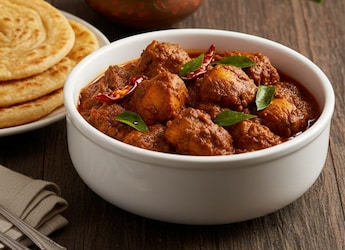Cinnamon is one of the popular spices in the world and is commonly used to add flavour to different food items. Apart from flavour and aroma, it also offers different medicinal benefits. "Cinnamaldehyde" is the main active ingredient, which is responsible for its majority of health benefits and aroma. Some of the studies suggest that cinnamon is useful as an anti-diabetic agent, antioxidant agent, antimicrobial agent and anti-inflammatory agent. It is also considered as helpful in cardiovascular diseases.
Also Read: Manage Diabetes: 7 Amazing Detox Water Recipes You Can Try
Nutritional Values Of Cinnamon
As per the USA Department of Agriculture (USDA), 1 teaspoon of ground cinnamon offers:
Calories: 6.42 kc
Carbohydrate: 2.1 gm
Calcium: 26.1 mg
Magnesium: 1.56 mg
Phosphorus: 11.2 mg
Potassium: 11.2 mg
Apart from that, it contains B Complex, several antioxidants such as Choline, Beta-carotene, Lycopene, Lutein, Zeaxanthin and different other antioxidant agents also. It's antioxidant properties help reduce oxidative stress and might be helpful in the prevention of type 2 diabetes, heart diseases and many other health conditions.
Types Of Cinnamon
There are following two main types of Cinnamon:
- Ceylon cinnamon
- Cassia cinnamon or Chinese cinnamon
Ceylon cinnamon is considered more helpful as compared to Cassia or Chinese cinnamon. The Ceylon variety of Cinnamon is originating in Sri Lanka and is most commonly found in Southeast Asia. However, Cassia cinnamon comes from China and is considered less effective.
Cinnamon In Diabetes
India is home to over 60 million adults with diabetes, of which more than 30 million are undiagnosed or untreated. Indians have significantly high rates of diabetes when compared to other ethnic groups such as Europeans, Africans and others. If we talk about good management of Diabetes as per Ayurvedic medicinal practices, Cinnamon has been used for a long time to deal with high blood sugar levels. It has been thought to have an insulin-mimetic & insulin-sensitizing action to deal with high blood sugar levels. In modern medicinal practices, one of the studies suggest, up to 6 grams of Cinnamon per day for 40 days has been lowered the blood sugar level and also found helpful in lowering total cholesterol level, triglyceride level and low-density lipoprotein (LDL) level as well. Hence Cinnamon is not only might be helpful in Diabetes care but might be useful for cardiovascular diseases also.
Other Health Benefits of Cinnamon
In Ayurvedic medicinal practices, Cinnamon is not only useful in Diabetes but also helpful in stomach ailments such as flatulence and bloating. It is also used in diarrhoea and dysentery. In Ayurveda, Bark of Cinnamon is used as an anti-inflammatory and astringent agent for toothache and rheumatoid joint pains.
Side Effects of Cinnamon
Excess intake of Cinnamon may cause liver damage. If someone is on blood thinner medicines or diabetic drugs, one should talk to his/her Doctor also. High dosage should be avoided as high dosage might be toxic also.
How To Use Cinnamon In Food Items
Cinnamon's flavour and fragrance come from its active ingredient "Cinnamaldehyde". Ground Cinnamon can be used in different types of dishes such as Cakes, Cookies, Bread, Different Curries, Oat-meals and Different types of smoothies- beverages.
Author Bio - Himanshu Rai is a Chief Dietitian and Nutritionist with more than 14 years of work experience in the field of Food and Nutrition and Life Member of Indian Dietetic Association (IDA) and Singapore Nutrition and Dietetic Association (SNDA).
Disclaimer: The opinions expressed within this article are the personal opinions of the author. NDTV is not responsible for the accuracy, completeness, suitability, or validity of any information on this article. All information is provided on an as-is basis. The information, facts or opinions appearing in the article do not reflect the views of NDTV and NDTV does not assume any responsibility or liability for the same.
